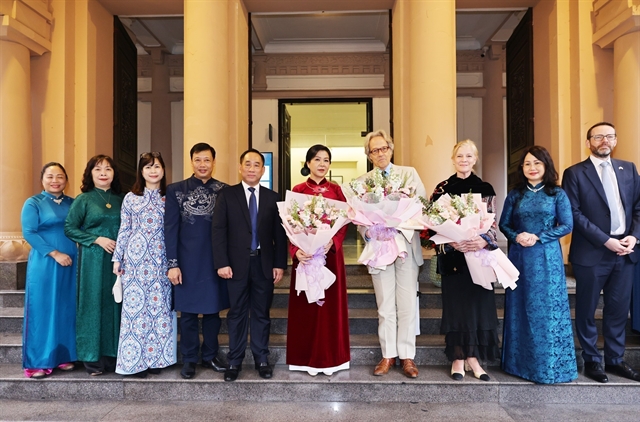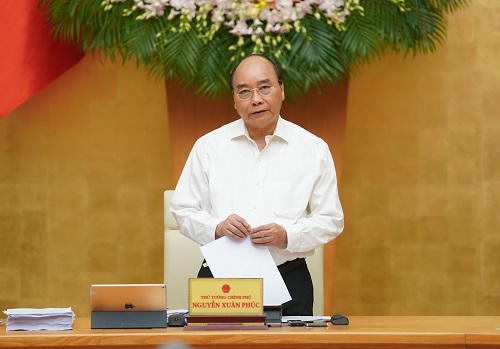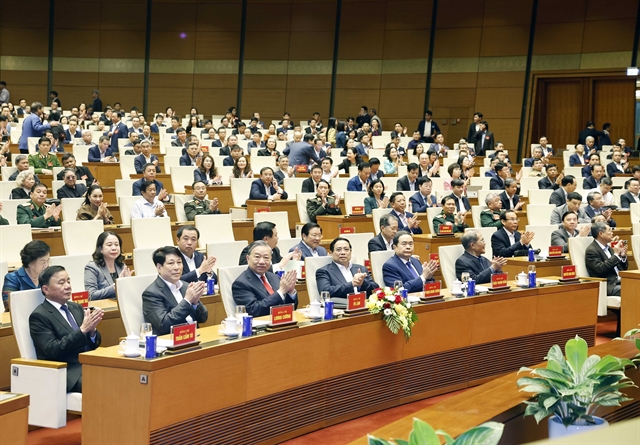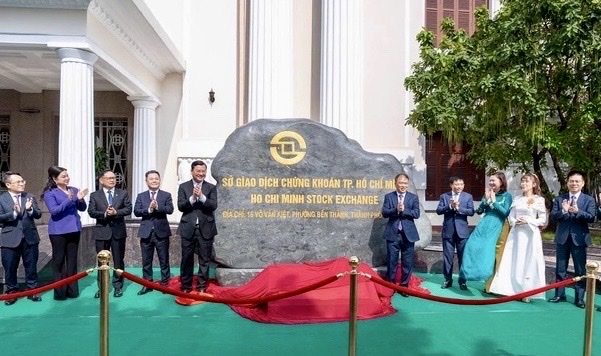 Politics & Law
Politics & Law


|
| PM Nguyễn Xuân Phúc chairs a Government cabinet meeting on Friday, calling for specific, practical measures to maintain growth and improve life for people during the pandemic. Photo baochinhphu.vn |
HÀ NỘI - Việt Nam’s economy in August saw positive moves despite the tremendously negative impacts of the COVID-19 pandemic on the country’s socio-economic development and people’s daily life, Prime Minister Nguyễn Xuân Phúc said on Friday.
Speaking at the monthly cabinet meeting, PM Phúc pointed out the country's outstanding achievements last month with a stable macroeconomy, well-implemented monetary policy and foreign exchange reserves at US$92 billion and expected to hit US$100 billion by year-end.
August’s CPI was 0.07 per cent higher than the previous month and the average CPI in the first eight months of 2020 increased 3.96 per cent compared with the same period last year.
Exchange rates were stable and interest rates tended to reduce, which supported production.
Agriculture was still a major pillar for the economy during this tough time thanks to bumper crops, reasonable farming product prices and good export revenue. The country expects to gain about $41 billion from agricultural exports this year.
Pork supply was increasing and pork prices were gradually reducing. According to the Ministry of Agriculture and Rural Development, the average pork price ranges from VNĐ77,000 to VNĐ83,000 per kilo while pork used to cost more than VNĐ100,000 per kilo due to sharply-reduced supply.
The PM applauded export activities as for the last eight months, Việt Nam’s export revenue topped $174 billion, an increase of 1.6 per cent compared with the same period last year. The trade surplus was some $11.9 billion.
Public investment disbursement improved significantly with VNĐ250 trillion disbursed in the last eight months, nearly 31 per cent compared with the same period last year. Many localities expected to disburse all of this year’s planned public investment on time.
Nearly 30 per cent of enterprises resumed operations last month.
Việt Nam also organised international and foreign affairs activities which helped affirm its position on the international stage, Phúc said.
However, problems and difficulties remained, Phúc said, noting the risk of the index of industrial production (IIP) reducing, gloomy trade and service activities due to COVID-19's resurgence, job losses, particularly in urban areas, and the complex developments of natural disasters and climate change.
“Specific, practical measures and actions are needed for us to gain not only positive growth but also the desired growth,” he said, calling for more effective assistance for business and labourers, especially those who lost jobs or saw their income cut due to the pandemic.
“We are determined to implement dual tasks – controlling the disease and revitalising the national economy,” he said.
“Strong economic stimulations are needed for both supply and demand sides. We need more effective fiscal policies and monetary policies to boost consumption, investment and exports. At the same time, we need to innovate technologies, increase productivity and improve the country’s competitiveness to meed demand of a new normal stage,” PM Phúc said.
Minister of Investment and Planning Nguyễn Chí Dũng said economies around the world faced the serious impacts of the pandemic and some were struggling with the second wave of the disease.
However, economies were considering re-opening borders in cautious manners and considering the transition from lockdown/social distancing to resume economic activities, Dũng said.
In Việt Nam, the resurgence of COVID-19 in some localities and its negative impacts on daily life and socio-economic development were more and more visible, Dũng said, adding that the pandemic had weakened Việt Nam’s key driving forces like exports and domestic consumption and tourism.
“To overcome the trap caused by COVID-19, we need to boost internal strengths of Việt Nam’s economy including to maintain sufficient supply of food and essential goods to keep food security, to continue exporting agriculture goods, to expand export markets and find new customers," he said.
Producers should take advantage of the domestic market with a population of 100 million people.
In the coming months, Việt Nam’s economy could face difficulties due to a global slowdown and negative impacts of the pandemic’s resurgence that hurt sectors like tourism, transportation, exports and unstable consumption.
Drastic measures to help enterprises overcome difficulties, ensure social security for people and speed up public investment disbursement were crucial at this time, Dũng said.
The minister also noted the complex development of COVID-19 in Việt Nam with deaths, serious cases and community transmission, so disease prevention and control measures must not be neglected.
PM Phúc said it was time to make Việt Nam's economy less reliant on imported materials and overseas suppliers and to focus more on the domestic market.
Also at the meeting, the PM asked the State Bank of Việt Nam to complete a decree on financial technology, online banking and verification. The Ministry of Information and Communication was asked to trial mobile money service and the Ministry of Public Security was asked to speed up the national database on personal identity.
On the possible resumption of commercial international flights, the PM asked for thorough management and control to avoid disease infection. The health sector was asked to develop quarantine plans for foreign experts, investors and skilled workers who are allowed to enter the country. VNS




